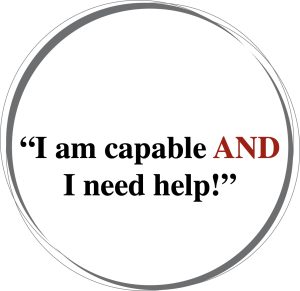Something that I have been exploring lately with my psychologist is “dialectics“.
I see a psychologist every few months to ensure I have space planned in my life to grieve, process and explore. I have a lot physically to contend with, so putting this in place is essential to balance that physical toll with my emotional wellbeing.
“But what is dialectics?” you may be thinking? I certainly wasn’t familiar with the term before I heard it. In essence, it’s being able to hold two seemingly opposing views.
So, in my case, having thoughts like “I am capable AND I need help” or “I am strong AND I have vulnerabilities”.
The see-saw nature of those thoughts is tricky to balance and it’s easy to forget that they can simultaneously exist – that I can still seek help but also be capable.
It is very easy for us humans to prefer to hold these polarising views rather than exploring a dialectical view. And sometimes when another has a black and white view, we find ourselves responding by becoming even more polarised.
I have definitely experienced this when requiring more help and feeling more vulnerable; I decide I’m too reliant to be capable.

Wisdom usually resides in finding the dialectical view – the two things that can contradict each other, can both be true at the same time.
So if this is the case, how can you listen to your own thoughts and make space for both?
Consider also how sometimes it takes another to make you aware of the other view and this can help shift and better balance your own view.